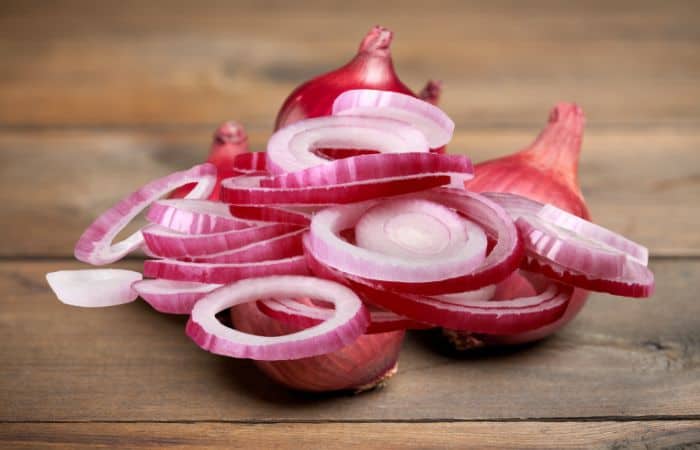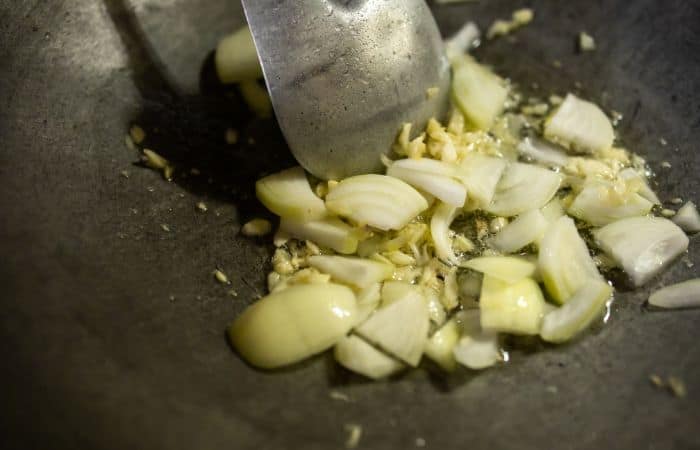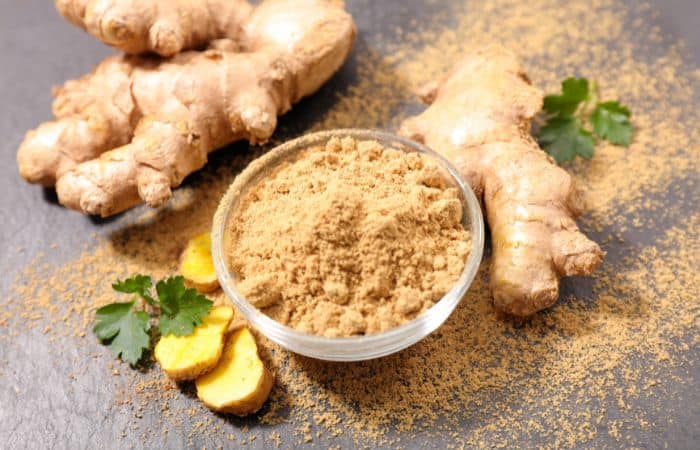The immune system plays a crucial role in protecting our bodies from harmful pathogens and maintaining overall health. A well-functioning immune system is essential for optimal wellness, especially during times when immune health is a top priority, such as during flu seasons or when facing a global pandemic.

While various factors contribute to immune health, diet plays a significant role in supporting the immune system. One often-overlooked vegetable that has been linked to immune-boosting properties is the humble onion. In this blog post, we will explore the potential benefits of onions for the immune system and what you need to know about incorporating them into your diet.
Understanding Onions
Onions are a staple vegetable in many cuisines around the world, known for their distinctive flavor and aroma. They belong to the Allium family, which also includes garlic, leeks, and shallots, and come in various types, such as red, yellow, white, and sweet onions, each with its unique characteristics.
Onions have been used for centuries for their medicinal properties, with historical records dating back to ancient civilizations like the Egyptians and Romans. They have been revered for their potential health benefits and were used for various purposes, including as a remedy for ailments like colds, infections, and digestive issues.

Onions are low in calories but rich in essential nutrients. They are an excellent source of vitamin C, vitamin B6, and dietary fiber, as well as containing small amounts of other vitamins and minerals like folate, potassium, and manganese. Onions also contain antioxidants, such as quercetin, which is known for its anti-inflammatory properties.
Different types of onions have varying flavors and uses in cooking. Red onions are typically milder and are often used raw in salads or pickled. Yellow onions are the most commonly used type, known for their pungent flavor and versatility in cooking. White onions are milder and are often used in Mexican and Asian cuisines. Sweet onions are known for their mild and sweet taste and are commonly used in salads or as a topping for burgers and sandwiches.
Onions and Immune Function
Onions have been studied for their potential impact on immune function, and research suggests that they may play a role in supporting a healthy immune system. Here are some key points to consider:
Antioxidant Properties
Onions are rich in antioxidants, including quercetin, which is known for its anti-inflammatory and immune-boosting properties. Quercetin has been shown to have a positive impact on immune function by reducing inflammation and oxidative stress, which can help support immune health.
Vitamin C
Onions are a good source of vitamin C, an essential nutrient that is known to support the immune system. Vitamin C is a powerful antioxidant that helps neutralize harmful free radicals in the body, and it also plays a crucial role in supporting immune cell function, including the production of white blood cells that help fight off infections.

Immune-Modulating Effects
Onions have been shown to have immune-modulating effects, meaning they can help regulate and balance the immune response. Research suggests that certain compounds found in onions, such as fructo-oligosaccharides (FOS), may have prebiotic properties, promoting the growth of beneficial gut bacteria, which can play a role in supporting a healthy immune system.
Anti-Inflammatory Properties
Chronic inflammation can weaken the immune system, making the body more susceptible to infections and diseases. Onions contain anti-inflammatory compounds that can help reduce inflammation in the body, which may have a positive impact on immune function.
Potential Anti-Microbial Effects
Onions have been shown to possess anti-microbial properties, which may help fight against harmful microorganisms, including bacteria and viruses. Some studies have suggested that certain compounds in onions, such as allicin, may have antimicrobial effects that can help support immune health.
Are There Different Types of Onions that Offer Different Health Benefits for The Immune System?
Yes, there are different types of onions that offer slightly different health benefits for the immune system. Here are some examples:
Red Onions
Red onions are known for their higher concentration of antioxidants compared to other onion varieties. They contain quercetin, a powerful antioxidant that has anti-inflammatory and immune-boosting properties. Quercetin has been shown to have a positive impact on immune function by reducing inflammation and oxidative stress, which can help support immune health.
Yellow Onions
Yellow onions are a common type of onion that are also beneficial for immune health. They are a good source of vitamin C, which is an essential nutrient known to support the immune system. Vitamin C acts as an antioxidant that helps neutralize harmful free radicals in the body and supports immune cell function, including the production of white blood cells that help fight off infections.
White Onions
White onions are milder in taste compared to red and yellow onions, but they still offer immune-boosting benefits. They contain similar antioxidants and nutrients as red and yellow onions, such as quercetin and vitamin C, which can support immune function and overall health.
Shallots
Shallots are a type of onion that are smaller in size and have a milder flavor. They contain antioxidants and nutrients that can support immune health, such as quercetin, vitamin C, and other immune-boosting compounds.
How Does Cooking or Processing Onions Affect Their Immune-Boosting Properties?
The way onions are cooked or processed can affect their immune-boosting properties to some extent. Here are a few key points to consider:
Heat Sensitivity of Nutrients
Onions, like many other vegetables, contain certain nutrients that are sensitive to heat and can be partially or fully destroyed by cooking. For example, vitamin C, which is an important immune-boosting nutrient found in onions, is heat-sensitive and can degrade during cooking. Therefore, the longer onions are cooked or the higher the heat used, the more potential loss of vitamin C content.
Antioxidant Activity
Onions are known for their high antioxidant activity, which contributes to their immune-boosting properties. Antioxidants help neutralize harmful free radicals in the body and reduce oxidative stress, which can support immune health. However, some of the antioxidant activity may be reduced during cooking or processing due to heat exposure or prolonged storage.

Nutrient Retention During Cooking Methods
The method of cooking onions can also impact the retention of immune-boosting nutrients. For example, boiling onions for a long time may result in nutrient loss in the cooking water, while shorter cooking methods such as sautéing or stir-frying may help retain more of the nutrients.
Potential Benefits of Cooked Onions
Despite the potential loss of some immune-boosting nutrients during cooking or processing, cooked onions can still offer health benefits. For example, while the vitamin C content may be reduced, other beneficial compounds such as quercetin, a potent antioxidant, can remain stable or even increase during cooking.
Raw Onion Consumption
Consuming raw onions, such as in salads or as toppings, can provide a higher amount of immune-boosting nutrients, including vitamin C and quercetin, as they are not exposed to heat. However, raw onions may be too pungent for some individuals or may cause digestive discomfort in some cases.
Can Onions Be Used in Combination with Other Foods or Supplements to Enhance Immune Health?
Yes, onions can be used in combination with other foods or supplements to enhance immune health. Here are some examples:
Citrus Fruits
Onions and citrus fruits, such as oranges, grapefruits, and lemons, can complement each other in supporting immune health. Citrus fruits are well-known for their high vitamin C content, which is a potent antioxidant that supports immune function. Onions also contain vitamin C, along with other immune-boosting compounds like quercetin. Combining onions with citrus fruits in salads, stir-fries, or other dishes can provide a synergistic effect, enhancing the immune-boosting properties of both foods.
Garlic
Garlic, like onions, belongs to the Allium family and is known for its immune-boosting properties. Garlic contains allicin, a compound known for its antioxidant, anti-inflammatory, and immune-enhancing properties. Combining onions and garlic in dishes like soups, stews, and sauces can provide a flavorful and powerful immune-boosting combination.
Ginger
Ginger is another powerful immune-boosting food that can complement onions. Ginger contains gingerol, a compound with anti-inflammatory and antioxidant properties that can support immune health. Combining onions and ginger in dishes like stir-fries, curries, or teas can provide a tasty and immune-supportive combination.

Probiotic-Rich Foods
Probiotics are beneficial bacteria that support a healthy gut, which plays a key role in immune function. Onions can be combined with probiotic-rich foods like yogurt, kefir, sauerkraut, or kimchi to promote a healthy gut and enhance immune health. For example, adding chopped onions to a bowl of yogurt or incorporating onions in a sauerkraut salad can provide a flavorful and immune-supportive combination.
Supplements
Onions can also be used in combination with immune-boosting supplements, such as vitamin C, vitamin D, zinc, or elderberry extract, to further enhance immune health. Consult with a healthcare professional or a registered dietitian before starting any new supplements to determine the appropriate dosage and ensure safety and effectiveness.
Conclusion
Incorporating onions into your diet can be a simple and delicious way to support your immune system. With their rich nutritional content, antioxidant properties, and potential health benefits, onions can play a beneficial role in strengthening your immune function. From fighting inflammation to supporting cardiovascular and digestive health, onions offer a wide range of advantages that can positively impact your overall wellness.
However, it’s always important to be mindful of potential allergies or side effects related to onions, and consult with a healthcare professional if you have any concerns. In conclusion, by including onions in your diet, you can potentially enhance your immune system’s ability to protect your body and promote optimal health. So, why not add this versatile vegetable to your grocery list and enjoy the immune-boosting benefits that onions have to offer?








